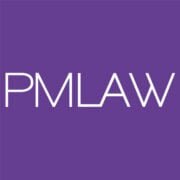Best Appeal Lawyers in São Bernardo do Campo
Share your needs with us, get contacted by law firms.
Free. Takes 2 min.
List of the best lawyers in São Bernardo do Campo, Brazil
About Appeal Law in São Bernardo do Campo, Brazil
Appeal law, known in Portuguese as “direito de recurso,” is a crucial part of the judicial system in São Bernardo do Campo, Brazil. An appeal is a legal process where a party asks a higher court to review the decision made by a lower court. This mechanism helps to ensure the fairness and accuracy of judicial decisions, offering individuals and organizations the chance to challenge court rulings they believe to be incorrect or unjust. Appeals in São Bernardo do Campo adhere to both the Brazilian federal procedural codes and specific state-level regulations relevant to the jurisdiction of São Paulo, of which São Bernardo do Campo is a part.
Why You May Need a Lawyer
Engaging a lawyer for an appeal is highly recommended due to the legal complexities and strict procedural requirements. Common situations where individuals may require legal help with an appeal include:
- Receiving an unfavorable judgment in criminal, civil, labor, or family law cases.
- Believing that a lower court made a procedural or substantive legal error.
- Facing significant financial or personal consequences due to a court decision.
- Needing to present new evidence or clarify misunderstandings from the original trial.
- Desiring to ensure the appeal is filed within proper deadlines and follows all legal protocols.
A qualified lawyer can help navigate the appeal procedures, file the proper documentation, present persuasive arguments, and advocate on your behalf before appellate judges.
Local Laws Overview
Appeal processes in São Bernardo do Campo are governed mainly by the Brazilian Code of Civil Procedure (CPC), the Penal Code, and local judicial norms set by the São Paulo State Court (Tribunal de Justiça de São Paulo - TJSP). Important aspects include:
- Strict deadlines for filing appeals, which can range from 5 to 15 days after a judgment, depending on the type of case.
- The requirement to submit a written justification for the appeal, addressing legal or factual errors in the original decision.
- The existence of several types of appeals, including “Apelação” (Appeal), “Embargos de Declaração” (Motion for Clarification), and “Recurso Especial” or “Recurso Extraordinário” for cases reaching higher courts.
- Possibility for oral argument in some appeal hearings.
- Local court rules and administrative provisions particular to courts in São Bernardo do Campo and the broader area of São Paulo state.
Understanding these local procedures is critical, as failure to comply can result in appeal dismissal.
Frequently Asked Questions
What is an appeal?
An appeal is a formal request to a higher court to review and possibly change the decision of a lower court.
Which courts handle appeals in São Bernardo do Campo?
Most appeals in São Bernardo do Campo are handled by the Tribunal de Justiça de São Paulo. For federal or specialized cases, appeals may be directed to federal courts or superior tribunals in Brasília.
How long do I have to file an appeal?
Deadlines vary, but generally you have between 5 and 15 days from the date you are notified of the judgment. Act quickly to avoid losing your right to appeal.
What types of decisions can be appealed?
Most final decisions and some interlocutory (intermediate) rulings in civil, criminal, labor, and family law cases are eligible for appeal, subject to legal exceptions.
Do I need a lawyer to file an appeal?
While not always strictly required, it is strongly advised to have a lawyer represent you due to the complex procedural and substantive aspects of appeals.
Can new evidence be introduced during an appeal?
Generally, appeals are limited to reviewing the record from the original trial. New evidence may be allowed only under exceptional circumstances and specific types of appeals.
What happens if my appeal is successful?
If your appeal is approved, the higher court may overturn or modify the lower court's decision, or order a new trial.
What happens if my appeal is denied?
If your appeal is denied, the original court decision remains in force. In some cases, further appeal to even higher courts may be possible.
How much does it cost to file an appeal?
Costs vary based on court fees, the complexity of the case, and attorney fees. Some people may qualify for free legal aid (“assistência judiciária gratuita”) if they cannot afford the expenses.
Can I appeal decisions from small claims courts?
Yes, but appeals from small claims (“Juizado Especial”) have special rules and stricter limits on the types of appeals allowed. Consult a lawyer to understand your options.
Additional Resources
If you need more information or assistance regarding appeals in São Bernardo do Campo, the following resources may be helpful:
- Tribunal de Justiça de São Paulo (TJSP): The official court responsible for most appeals in the region.
- Ordem dos Advogados do Brasil - Seção São Paulo (OAB-SP): The state bar association offers guidance on finding qualified lawyers.
- Defensoria Pública do Estado de São Paulo: Provides free legal assistance to those who cannot afford private lawyers.
- Faculdades de Direito (Law Schools): Many local law schools offer free legal clinics (núcleos de prática jurídica) for the community.
- Juizados Especiais: Local small claims courts can provide information about appeal rights and processes for simpler cases.
Next Steps
If you believe you have grounds for an appeal in São Bernardo do Campo, your first step should be to consult a lawyer familiar with local appeal procedures. Gather all relevant documentation, including your original court decision and any related evidence. Act quickly due to the tight deadlines for appeals. If you cannot afford legal representation, reach out to the Defensoria Pública or local legal aid organizations for help. Clarifying your situation with a legal professional will ensure the best approach for your case and maximize your chances of a successful appeal.
Lawzana helps you find the best lawyers and law firms in São Bernardo do Campo through a curated and pre-screened list of qualified legal professionals. Our platform offers rankings and detailed profiles of attorneys and law firms, allowing you to compare based on practice areas, including Appeal, experience, and client feedback.
Each profile includes a description of the firm's areas of practice, client reviews, team members and partners, year of establishment, spoken languages, office locations, contact information, social media presence, and any published articles or resources. Most firms on our platform speak English and are experienced in both local and international legal matters.
Get a quote from top-rated law firms in São Bernardo do Campo, Brazil — quickly, securely, and without unnecessary hassle.
Disclaimer:
The information provided on this page is for general informational purposes only and does not constitute legal advice. While we strive to ensure the accuracy and relevance of the content, legal information may change over time, and interpretations of the law can vary. You should always consult with a qualified legal professional for advice specific to your situation.
We disclaim all liability for actions taken or not taken based on the content of this page. If you believe any information is incorrect or outdated, please contact us, and we will review and update it where appropriate.











